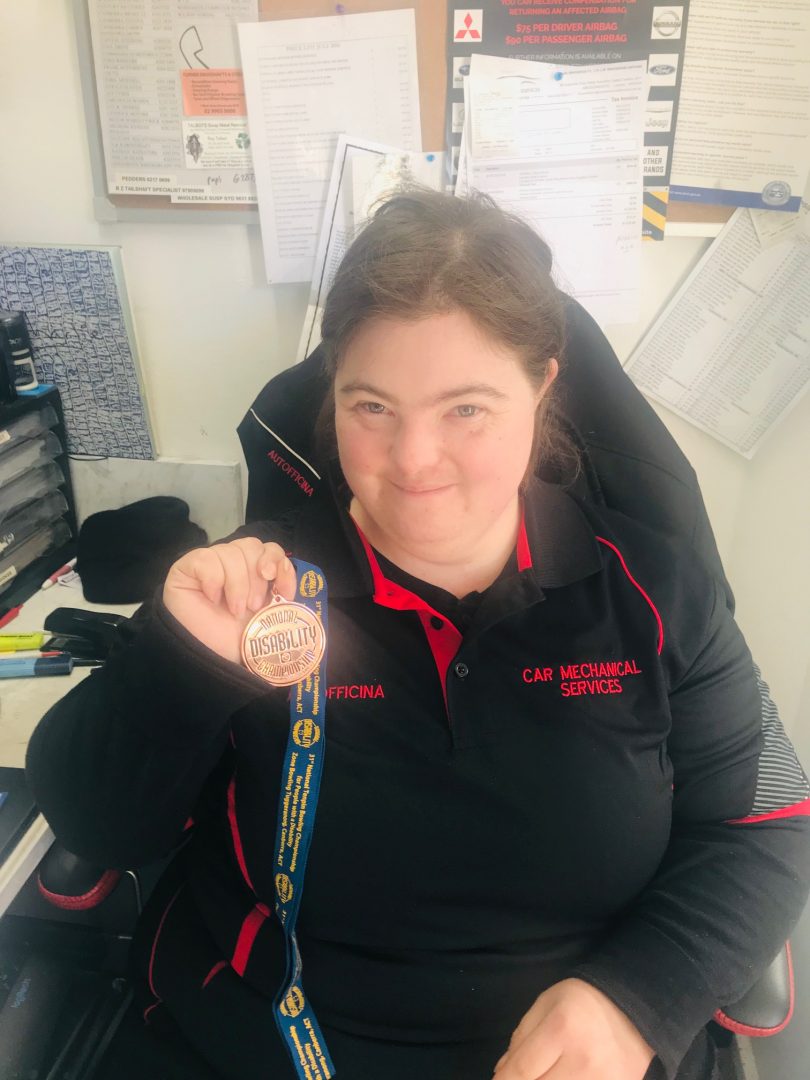
Naomi at work, showing off her medal won for bowling at the National Cole Cup. Photos: Rachel Sirr.
Introducing Naomi, a 31-year-old administrative assistant at a local Canberra mechanic shop. Naomi has Down Syndrome, but she is seriously challenging the stereotypes of people with disabilities who can’t be independent, work in mainstream places or meaningful jobs.
It is a bright sunny day and I am greeted outside the shop by Naomi, and her employers, Raffy and Charlie Sgroi, Fisher locals and owners of Fisher Car Mechanical services.
The mechanic shop is behind Fisher shops, where around 400 people pass by each day. It is home to various specialist shops, a plumber, pet care, supermarket, post office and a retirement home.
Naomi is shy at first but soon warms up. She shows off her new medal won recently for ten pin bowling at the National Cole Cup.
I learn about some of the typical duties that Naomi undertakes, which include filing of invoices and statements, updating staff timesheets, payroll and some childcare support. Naomi works eight hours a week at the shop.
Raffy tells me how she came to hire Naomi. “I first met Naomi and her mum at our fundraising breakfast. We picked up a vibe that she was looking for a place to work, but needed assistance,” said Raffy.
“So we hired her – it’s just a matter of being in touch with her employment coordinator.”
Only half of the population of people with a disability (aged 15-64) are employed, compared with 82.4 per cent of the wider population. In Canberra, 62,000 people live with a disability. The Private sector is the largest employer of people with disabilities in Canberra, (11,100), followed by government (8,800) – a surprise, given Canberra is a government town.
Naomi’s mum, Karen said: “I think it is absolutely wonderful to see a business giving Naomi a chance to work, and to be accepted.”
Naomi lives independently with a bit of in-home assistance. “It makes me feel good to have a job,” Naomi says. “I enjoy using my money to go out to movies. I love hair bands – I forgot to wear one today!” she chuckles.
Naomi says she likes being busy, and doing stuff. “My best friend also has a job at Fernwood.” She tells me.
Naomi’s contribution to the workplace has been positive not only for the Sgrois, but for customers of the mechanics, and nearby residents.
Together, Raffy and Naomi visit the nearby retirement and nursing home. “Naomi provides companionship for the older people, she is also great with the kids,” says Raffy.
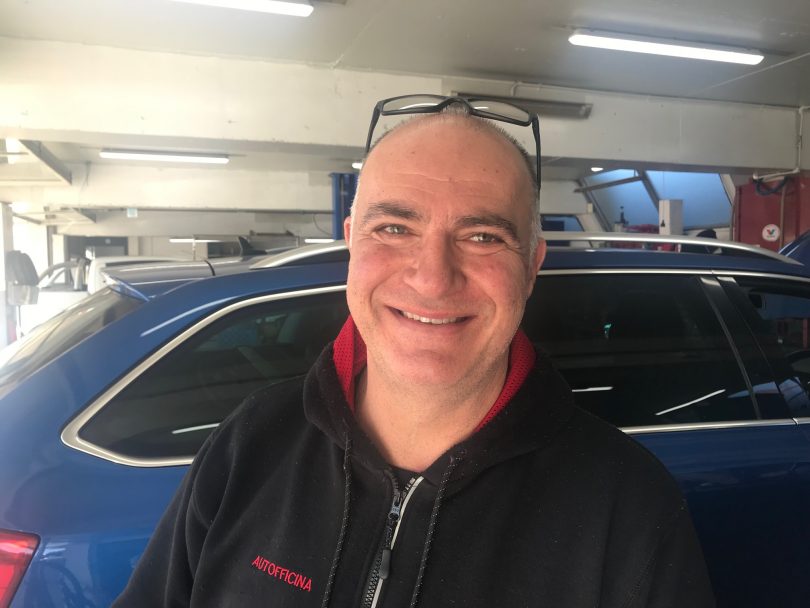
Charlie Sgroi, owner of Fisher Car Mechanical Services.
“We often bring cakes to the retirement home. The older people and young people with disabilities really connect.”
“Naomi is also good at occasionally babysitting my older kids. She’s good at detailed dobbing in of what my seven-year-old did.”
Raffy says Naomi has grown in confidence and is very happy in her job – an important part of being included in society.
Ms Sgroi is also aware of other issues for accessibility at her business. “If you never had a client with a wheelchair, you wouldn’t know. So we lowered our counter.”
She says that being thoughtful in a business makes society more liveable. “It’s the small things that matter.”
“There are incentives from the Government so it doesn’t cost that much and the benefits definitely outweigh the costs,” says Raffy.
So why aren’t more businesses employing people with disabilities? Or modifying their environment? According to the latest research, barriers include a lack of information, lack of understanding about different disability types and work restrictions and supports, perceived legal risks, and cost and time.
“So many businesses are not aware of the benefits of hiring someone with a disability. People with disabilities have so much to give,” says Raffy.
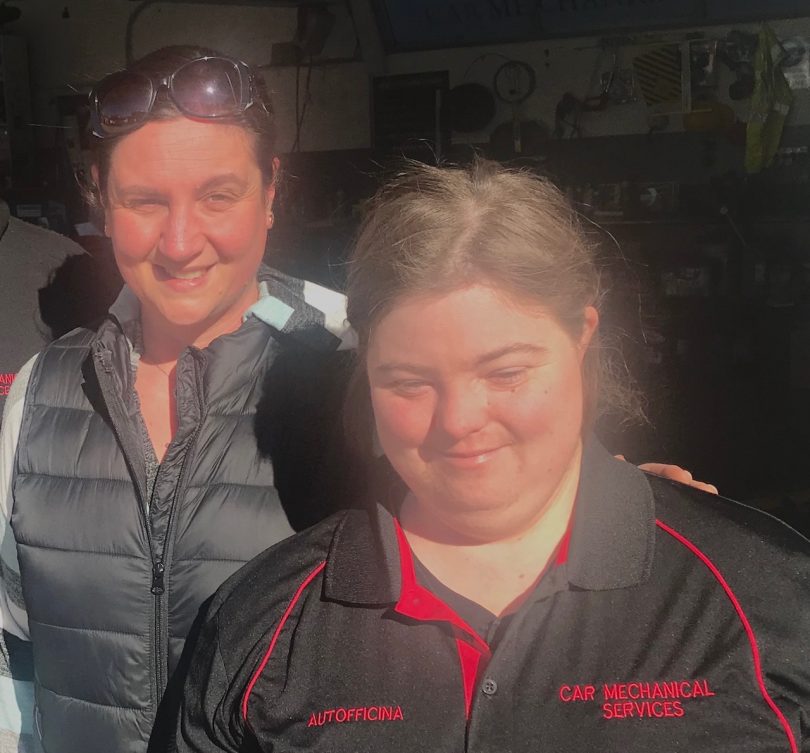
Raffy Sgroi, owner of Fisher Car Mechanical Services and Naomi.
The Sgrois are deeply and personally committed to hiring people with disabilities. Having a brother with Down Syndrome*, Charlie is all too aware of the challenges people with Down Syndrome face.
The Sgrois have been a driving force for good in the local Fisher community, recently hosting a big breakfast to raise funds for the ACT Down Syndrome Association (a member of PWDACT).
Naomi has inspired Raffy to focus on the positive. To smile. “Sure there are days I might feel like crying or even screaming. But my issues are nothing, and Naomi always smiles so I think I should too,” says Raffy.
According to a spokesperson for the Department of Social Services, more than $3 billion is allocated over the next four years in disability employment and other services, including for work-related equipment and modifications. Wage Subsidies are available.
“People with disabilities can do much more,” says Raffy. “If every business could put in and do this it would be great.”
To find out more about hiring someone with a disability, employers should visit jobaccess.gov.au or phone 1800 464 800. To fund practical inclusion projects, businesses can apply online for an ACT disability inclusion grant. Employers can reach out for peer support through Inclusion in Employment, headed by Cam Sullings of the Canberra Business Chamber.
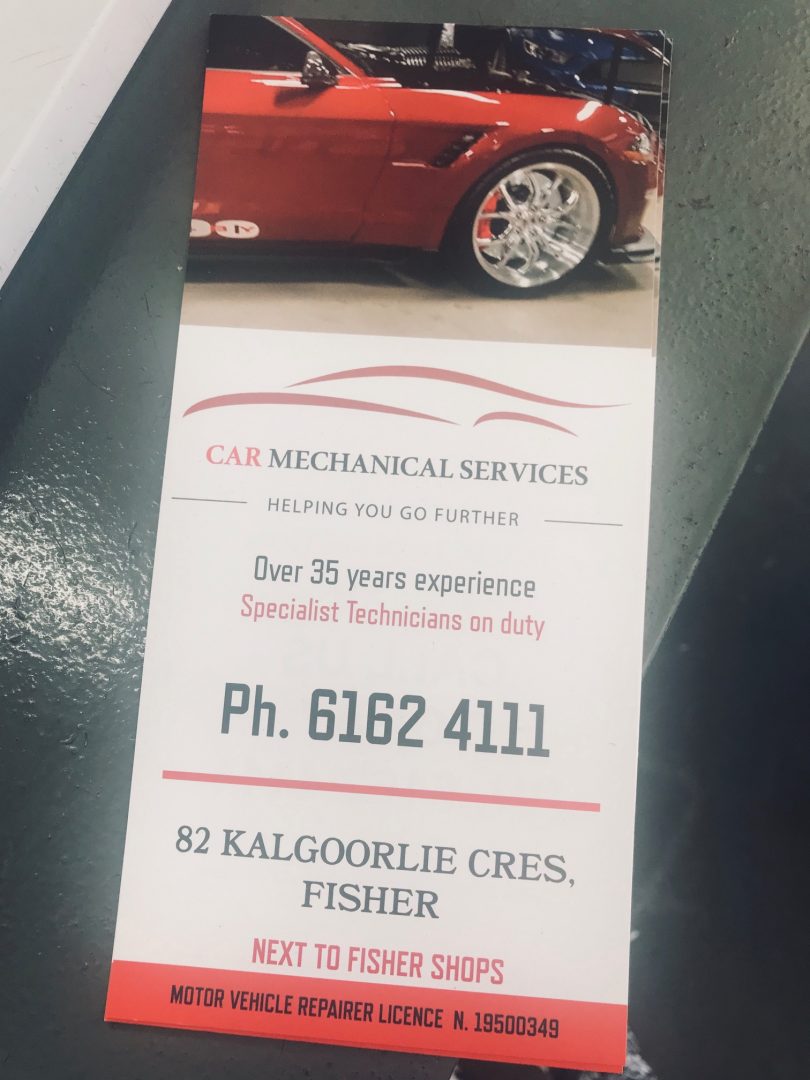
The Fisher Car Mechanical Services where Naomi is a happy employee.
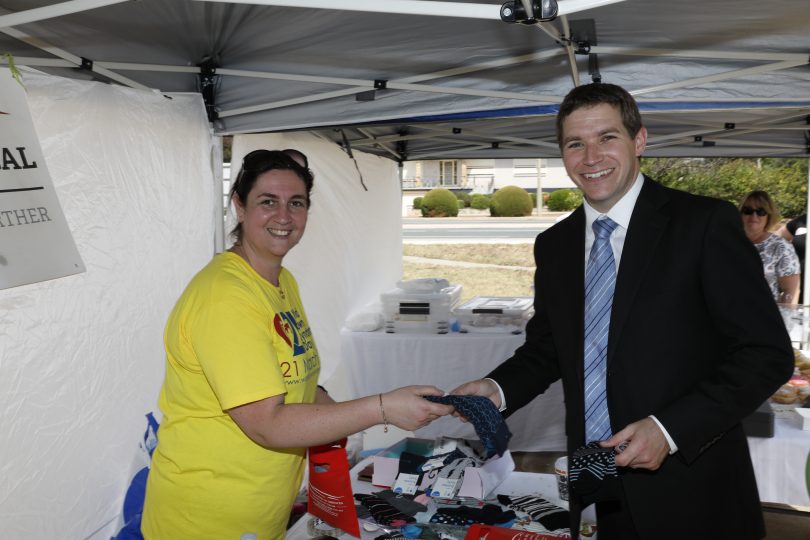
Early 2018, Raffy and Alistair Coe at the fundraising breakfast hosted at Fisher Shops for ACT Down Syndrome.
*Charlie’s brother attends Sharing Places during the day (another member of PWDACT), an organisation committed to providing opportunities for people with disability. For more details, visit their website.
Do you or someone you know have a disability? Why not join People with Disabilities ACT today – membership is free for individuals with a disability. Help build a stronger collective voice for people with disabilities in Canberra.
Original Article published by Rachel Sirr on The RiotACT.


What's Your Opinion?